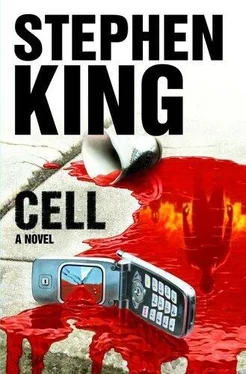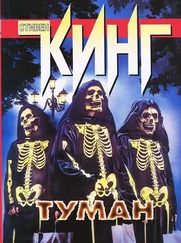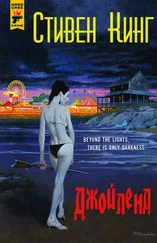"I know," Clay said. His eyes were stinging and he could feel his voice beginning to waver. "And I know his mother is probably . . ." He shrugged and flung an unsteady hand at the dark, sloping-away world beyond his leaf-strewn driveway. "But Tom, I have to go to the Town Hall and see. They may have left word. He may have left word."
"Yes," Tom said. "Of course you do. And when we get there, we can decide what comes next." He spoke in that same tone of awful kindness. Clay almost wished he'd laugh and say something like Come on, you poor sap — you don't really think you're going to see him again, do you? Get fucking real.
Jordan had read the note a second time, maybe a third and fourth. Even in his current state of horror and grief, Clay felt like apologizing to Jordan for Johnny's poor spelling and composition skills—reminding Jordan that his son must have written under terrible stress, crouched on the stoop, scribbling while his friends stood watching chaos swirl below.
Now Jordan lowered the note and said, "What does your son look like?"
Clay almost asked why, then decided he didn't want to know. At least not yet. "Johnny's almost a foot shorter than you. Stocky. Dark brown hair."
"Not skinny. Not blond."
"No, that sounds like his friend George."
Jordan and Tom exchanged a look. It was a grave look, but Clay thought there was relief in it, too.
"What?" he asked. "What? Tell me."
"The other side of the street," Tom said. "You didn't see because you were running. There's a dead boy about three houses down. Skinny, blond, red backpack—"
"That's George Gendron," Clay said. He knew George's red backpack as well as he knew Johnny's blue one with the strips of reflecting tape on it. "He and Johnny made a Puritan village together for their fourth-grade history project. They got an A-plus. George can't be dead." But he almost certainly was. Clay sat down on the stoop, which gave its old familiar creak under his weight, and put his face in his hands.
3
The town hall was at the intersection of pond and mill streets, in front of the town common and the body of water that gave the little village its name. The parking lot was almost empty except for the spaces reserved for employees, because both streets leading to the big white Victorian building were jammed with stalled vehicles. People had gotten as close as they could, then walked the rest of the way. For latecomers like Clay, Tom, and Jordan, it was a slow slog. Within two blocks of the Town Hall, not even the lawns were free of cars. Half a dozen houses had burned down. Some were still smoldering.
Clay had covered the body of the boy on Livery Lane—it had indeed been Johnny's friend George—but they could do nothing for the scores of swollen and putrefying dead they encountered as they made their slow way toward the Kent Pond Town Hall. There were hundreds, but in the dark Clay saw none that he recognized. That might have been true even in daylight. The crows had put in a busy week and a half.
His mind kept going back to George Gendron, who had been lying facedown in a clot of bloody leaves. In his note, John had said that George and Mitch, his other good friend this year in the seventh grade, had been with him. So whatever had happened to George must have happened after Johnny taped that note to the storm door and the three of them left the Riddell house. And since only George had been in those bloody leaves, Clay could assume Johnny and Mitch had gotten off Livery Lane alive.
Of course assume makes an ass out of you and me, he thought. The gospel according to Alice Maxwell, may she rest in peace.
And it was true. George's killer might have chased them and gotten them somewhere else. On Main Street, or Dugway Street, maybe neighboring Laurel Way. Stabbed them with a Swedish butcher knife or a couple of car aerials . . .
They had reached the edge of the Town Hall parking lot. On their left was a pickup truck that had tried to reach it overland and wound up mired in a boggy ditch less than five yards from an acre of civilized (and largely deserted) asphalt. On their right was a woman with her throat torn out and her features pecked away to black holes and bloody ribbons by the birds. She was still wearing her Portland Sea Dogs baseball cap, and her purse was still over her arm.
Killers weren't interested in money anymore.
Tom put a hand on his shoulder, startling him. "Stop thinking about what might have happened."
"How did you know—"
"It doesn't take a mind reader. If you find your son—you probably won't, but if you do—I'm sure he'll tell you the whole story. Otherwise . . . does it matter?"
"No. Of course not. But Tom . . . I knew George Gendron. The kids used to call him Connecticut sometimes, because his family moved from there. He ate hot dogs and hamburgers in our backyard. His dad used to come over and watch the Patriots with me."
"I know," Tom said. "I know." And, to Jordan, sharply: "Stop looking at her, Jordan, she's not going to get up and walk."
Jordan ignored him and kept staring at the crow-picked corpse in the Sea Dogs hat. "The phoners started trying to take care of their own as soon as they got back some base-level programming," he said. "Even if it was only fishing them out from under the bleachers and throwing them into the marsh, they tried to do something. But they don't take care of ours. They leave ours to rot where they fell." He turned to face Clay and Tom. "No matter what they say or what they promise, we can't trust them," he said fiercely. "We can't, okay?"
"I'm totally down with that," Tom said.
Clay nodded. "Me too."
Tom tipped his head toward the Town Hall, where a few emergency lights with long-life batteries still shone, casting a sickly yellow glow on the employees' cars, which now stood in drifts of leaves. "Let's go in there and see what they left behind."
"Yes, let's do it," Clay said. Johnny would be gone, he had no doubt of that, but some small part of him, some small, childish, never-say-die part, still continued to hope that he would hear a cry of "Daddy!" and his son would spring into his arms, a living thing, real weight in the midst of this nightmare.
4
They knew for sure the town hall was deserted when they saw what had been painted across the double doors. In the fading glow of the battery-powered emergency lights, the large, sloppy strokes of red paint looked like more dried blood:
KASHWAK=N0-F0
"How far away is this Kashwak place?" Tom asked.
Clay thought about it. "I'd say eighty miles, almost due north. You'd take Route 160 most of the way, but once you get on the TR, I don't know."
Jordan asked, "What exactly is a TR?"
"TR-90's an unincorporated township. There are a couple of little villages, some quarries, and a two-bit Micmac rez up north, but mostly it's just woods, bear, and deer." Clay tried the door and it opened to his hand. "I'm going to check this place out. You guys really don't have to come if you don't want to—you can be excused."
"No, we'll come," Tom said. "Won't we, Jordan?"
"Sure." Jordan sighed like a boy confronted with what may be a difficult chore. Then he smiled. "Hey, electric lights. Who knows when we'll get to see them again."
5
No Johnny Riddell came hurtling out of a dark room to throw himself into his father's arms, but the Town Hall was still redolent of the cooking that had been done on gas grills and hibachis by the people who'd gathered here following the Pulse. Outside the big main room, on the long bulletin board where notices of town business and upcoming events usually hung, perhaps two hundred notes had been posted. Clay, so tense he was nearly panting, began to study these with the intensity of a scholar who believes he may have found the lost Gospel of Mary Magdalene. He was afraid of what he might find and terrified of what he might not. Tom and Jordan retreated tactfully to the main meeting room, which was still littered with the remains of the refugees who had apparently spent several nights here, waiting for a rescue that had never come.
Читать дальше








